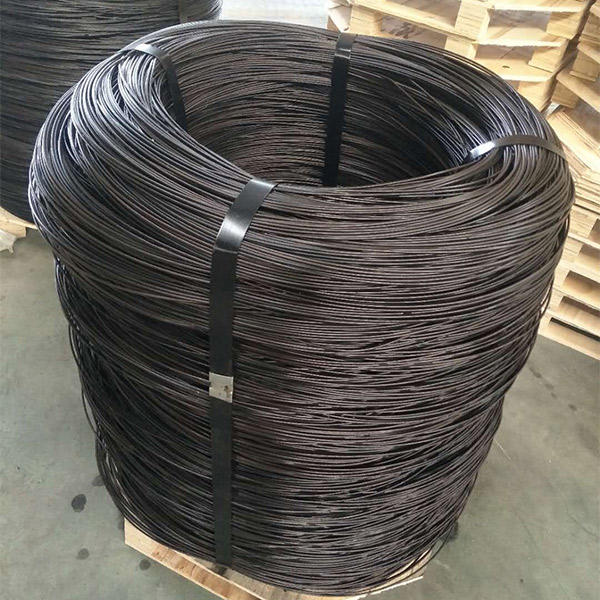12월 . 29, 2024 11:50 Back to list
High-Quality Twisted Rebar Production for Enhanced Structural Strength and Durability
The Importance of Twisted Rebar in Modern Construction
In the ever-evolving landscape of modern construction, the materials used can significantly influence the integrity and durability of a structure. Among these materials, twisted rebar, or twisted reinforcing bars, has emerged as an essential element, offering unique advantages that enhance the strength and resilience of concrete structures. This article explores the characteristics, benefits, and applications of twisted rebar, as well as the role of specialized manufacturers in producing this vital construction component.
What is Twisted Rebar?
Twisted rebar is a type of reinforcing bar that has a helical twist along its length. This twist improves the bond between the concrete and the rebar, leading to a more robust and durable finished product. Traditional rebar typically features a smooth or ribbed surface, which provides some grip within the concrete. However, the unique geometry of twisted rebar increases surface area contact, resulting in improved structural integrity.
Benefits of Twisted Rebar
1. Enhanced Bonding The twisted design of rebar allows for superior adhesion to concrete. When the concrete hardens around the twisted rebar, it locks into place more effectively than with standard rebar. This strong bond reduces the risk of slippage and contributes to the overall strength of the concrete structure.
2. Increased Flexibility Twisted rebar's unique structure provides enhanced flexibility compared to traditional straight rebar. This flexibility allows it to better accommodate the movements and stresses that structures may experience over time, such as settling, thermal expansion, or seismic activity.
3. Improved Load Distribution The helical shape of twisted rebar facilitates more even load distribution across the concrete. This means that when loads are applied to the structure—whether from the weight of the building itself or external forces—the rebar can better manage these stresses, reducing the risk of cracks and structural failure.
4. Corrosion Resistance Many twisted rebar manufacturers offer options with protective coatings designed to resist corrosion. This is particularly important in environments where moisture or chemicals can accelerate deterioration, ensuring that the rebar maintains its strength and performance over time.
5. Cost-Effectiveness While twisted rebar may have a slightly higher upfront cost than traditional rebar, its enhanced performance can lead to long-term savings. The reduced need for repairs and maintenance, alongside extended service life, makes it a cost-effective choice for many projects.
twisted rebar manufacturer

Applications of Twisted Rebar
Twisted rebar is versatile and can be utilized in a variety of construction applications. It is particularly effective in
- High-Rise Buildings In skyscraper construction, where weight and stress distribution are crucial, twisted rebar provides the necessary support to maintain structural stability. - Bridges The flexibility and improved bonding characteristics of twisted rebar make it ideal for bridges, which are subject to constant movement and varying loads.
- Foundations For foundations that must support significant weight, twisted rebar enhances the foundation's ability to cope with stress, minimizing the risk of cracks and structural failure.
- Seismic Zones In areas prone to earthquakes, the improved flexibility and load distribution properties of twisted rebar can provide added safety and resilience.
The Role of Manufacturers
The quality of twisted rebar largely depends on the manufacturers that produce it. Leading twisted rebar manufacturers invest in advanced technology and quality control processes to ensure their products meet industry standards. These manufacturers often work closely with engineers and contractors to understand their specific needs and develop tailored solutions for various projects.
Moreover, many manufacturers place a strong emphasis on sustainability, producing rebar from recycled materials wherever possible and implementing environmentally friendly practices throughout their production processes.
Conclusion
Twisted rebar is revolutionizing the construction industry by offering enhanced bonding, flexibility, and cost-effectiveness. As urbanization and infrastructure demands grow, the role of advanced materials like twisted rebar becomes increasingly crucial. By choosing high-quality twisted rebar from reputable manufacturers, construction professionals can ensure the safety and longevity of their projects, leading to stronger and more durable structures for future generations.
-
Welded Wire Mesh for Industry Factory - Durable & Custom Solutions
NewsAug.23,2025
-
Your Galvanized Steel Fence Factory - Strong, Durable Solutions
NewsAug.22,2025
-
Welded Wire Mesh for Industry: Factory Direct & Custom Solutions
NewsAug.21,2025
-
Welded Wire Mesh for Industry | Factory Direct & Durable Solutions
NewsAug.19,2025
-
Chain Link Fence-Anping County Puersen Hardware Wire Mesh Co., Ltd.|Durable Security&Versatile Applications
NewsAug.18,2025
-
Glass Food Storage Jar with Screw Wooden Lid - Anping County Puersen|Heat-Resistant & BPA Free
NewsAug.18,2025

